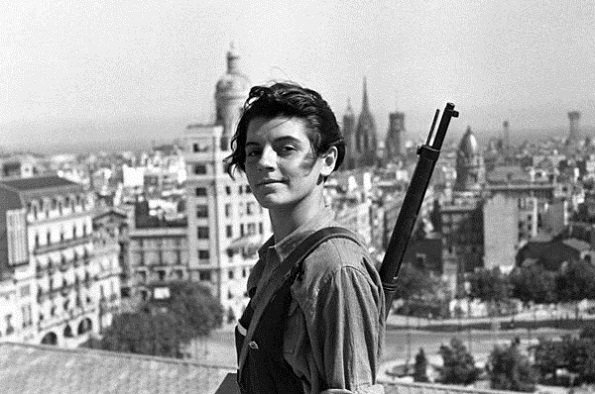
Annual Buchanan Lecture: 'Transnational Language and Conflicting Memories over the Spanish Civil War' with Javier Alcalde
- Angela Tellier
- Admission: Free. Book via Eventbrite
- Book now
Add this event to my calendar
Click on "Create a calendar file" and your browser will download a .ics file for this event.
Microsoft Outlook: Download the file, double-click it to open it in Outlook, then click on "Save & Close" to save it to your calendar. If that doesn't work go into Outlook, click on the File tab, then on Open & Export, then Open Calendar. Select your .ics file then click on "Save & Close".
Google Calendar: download the file, then go into your calendar. On the left where it says "Other calendars" click on the arrow icon and then click on Import calendar. Click on Browse and select the .ics file, then click on Import.
Apple Calendar: The file may open automatically with an option to save it to your calendar. If not, download the file, then you can either drag it to Calendar or import the file by going to File >Import > Import and choosing the .ics file.
Wed 9 May 2018, 16:30 – 18:00
Seminar Room 4, Rendall Building
http://www.esperantoresearch.org.uk/site/lecture
80 years after Franco's coup d'état, the country still ranks number two in the world on the number of missing persons, behind Cambodia. Different from other similar cases, such as Germany and Italy, in Spain the fascist regime never faced trial. This has had a strong impact on the official narrative of the War, such that both sides – brothers against brothers – are seen as equally responsible for what happened. Even more, in today’s mass media, it is not uncommon to find examples of a revisionist discourse, which argues that the four decades of dictatorship saved the country from Communism.
In order to gain perspective, it is useful to tackle this debate from a transnational approach, by focusing on sources written in the so-called international language, Esperanto. In fact, Esperanto was popular in the 1930s and played a number of roles in the war – it was used, for example, by the anarchists, the communists and the Catalan government. With some difficulties, Esperanto was effectively used also in the post-war years.
About the speaker
Javier Alcalde (Barcelona, 1978) holds a PhD in Social and Political Sciences from the European University Institute (2009) and an Executive Master’s Degree in Diplomacy and Foreign Affairs from Pompeu Fabra University (2015). He has worked as a researcher at the International Catalan Institute for Peace in Barcelona, at the Centre of Advanced Studies on Social Sciences, Juan March Institute, Madrid, and at the Centre of Social Movements Studies of the Scuola Normale Superiore in Florence. He has taught at different institutions, including Universitat Autònoma de Barcelona, Universitat Oberta de Catalunya, Universitat Pompeu Fabra, and Arcadia University.
Javier Alcalde has published extensively on topics such as human security, arms trade, transnational activism, refugees, pacifism and linguistic rights and conflicts. On public history, he has coedited the collective volume Antaŭ Jarcento. Esperanto kaj la Unua Mondmilito [A Century Ago. Esperanto and the First World War]. He is currently working on a complete biography of Eduardo Vivancos, a veteran of the Spanish Civil War, and also explores the Esperanto workers’ movement in Catalonia before Franco. He is a member of the research project Militrakontoj (http://mondmilito.hypotheses.org/), a transnational view of World War II.
